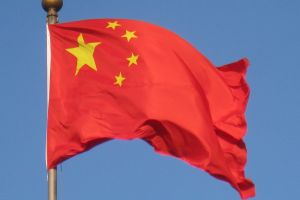China’s growing contributions to African development should not automatically be feared, but their increased presence should create a recalibration in US approaches to development.
Key Facts and Figures
China is now the largest trading partner for the African continent, and China’s Export-Import Bank aims to invest more than $1 trillion in the continent by 2025. In addition, China has now surpassed the United States government in total agriculture R&D funding. China has increased its presence in African development—a trend that will persist because its model is extremely attractive to both China and many African nations.
China’s growing contributions to African development should not automatically be feared, but their increased presence should create a recalibration in US approaches to development. Current US National Security Advisor and former Ambassador John Bolton in his announcement of the administration’s Prosper Africa initiative cast China’s presence in Africa as a strategic challenge for the United States.
The market opportunities on the African continent are enormous. Consumer expenditure is expected to reach $2.1 trillion by 2025 and $2.5 trillion by 2030. The World Bank estimates that the African food market alone could be worth $1 trillion by 2030, more than tripling the current $300 million market.
China’s ability to directly finance and construct infrastructure projects with fewer conditions is unique and has raised worries in some quarters about the expropriation of natural resources, environmental hazards, labor displacement, unstable debt burdens, and land grabs.
In addition, China’s investment strategy leaves notable gaps that the United States, leaning on its expertise, can fill. The most direct and sustainable mechanism for moving people out of poverty is investment in agriculture—in particular, smallholder agriculture. US leadership on global water, food, and nutrition security is essential to catalyze the innovations and development necessary to achieve US foreign policy and development goals on the continent.
To maintain its global leadership in this strategically important continent, the United States should consider prioritizing technical assistance for water sustainability and thereby support sanitation and agricultural growth. The United States must also continue to find ways to deepen its relationships with African partners to demonstrate US commitment to building resilience and self-reliance in these communities for the long term.
Simultaneously, the United States and its allies should work through international institutions to encourage China to adopt policies that achieve shared global objectives in economic development, security, human welfare, and sustainability.


